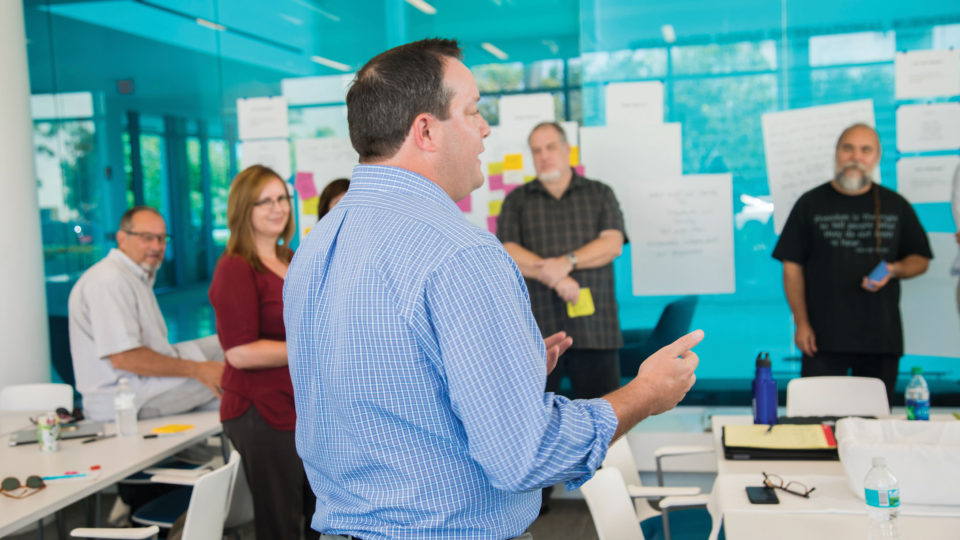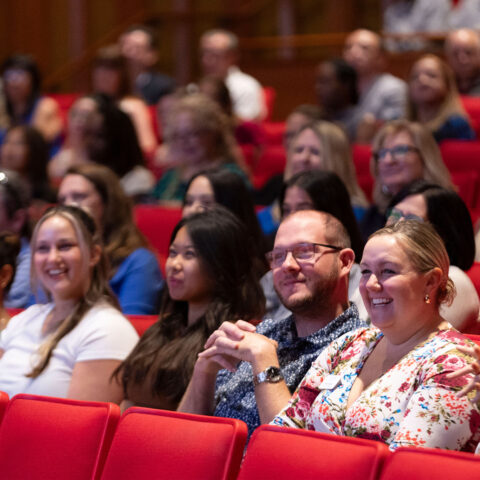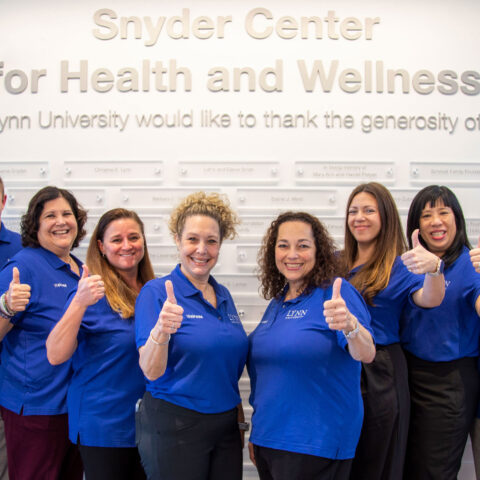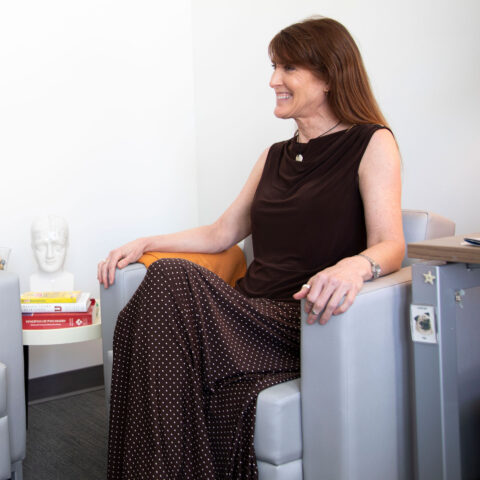The university’s next strategy, which will be announced in early 2018, will focus on expanding more new learning models to more students and engaging students and alumni with even more personalized support.
As Lynn constructs its brand-new university center, celebrates the successful completion of Lynn 2020 and prepares to embark on its next strategic plan, it’s clear that the school is just warming up for even bigger things ahead.
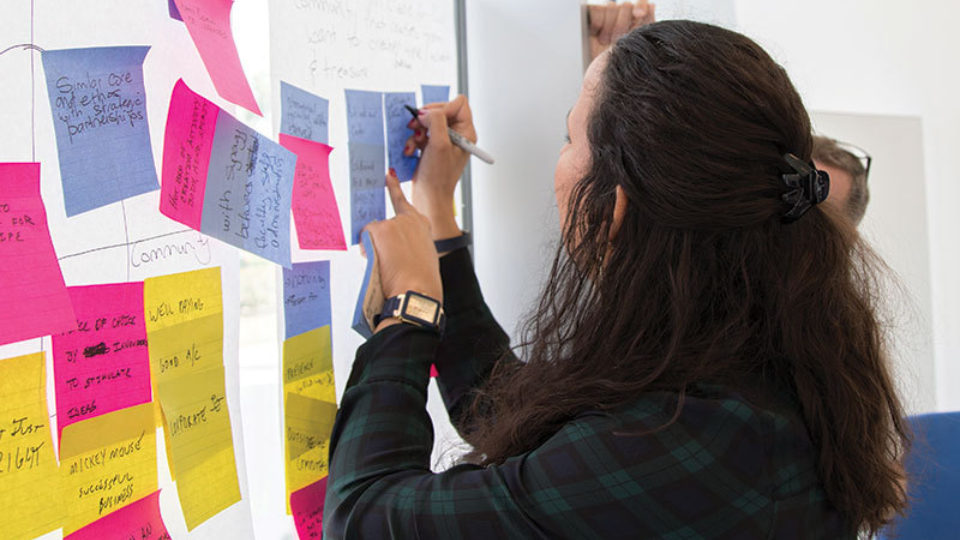
For the past several months, students, faculty, alumni and administrators have been designing the future of Lynn through design thinking. Led by CIO Chris Boniforti MBA ’02, the interactive, hands-on design thinking sessions have resulted in impactful ideas and different perspectives.
“Design thinking begins with a focus on ‘end users,’ and their unmet needs and priorities. It provides a framework for Lynn’s community to work collaboratively to solve problems,” said Boniforti, who attended Stanford’s d.school Design Thinking Bootcamp last spring.
Based on insights from student life, athletics, faculty, staff, alumni, the cabinet and board of trustees, Boniforti says an ambitious new plan is already starting to take shape. The university’s next strategy, which will be announced in early 2018, will focus on expanding more new learning models to more students and engaging students and alumni with even more personalized support.
“The best ideas are not always from one person or a singular source, but are built upon. A design thinking approach has allowed us to engage across our campus community to develop creative strategies to further improve our university,” said President Kevin M. Ross.
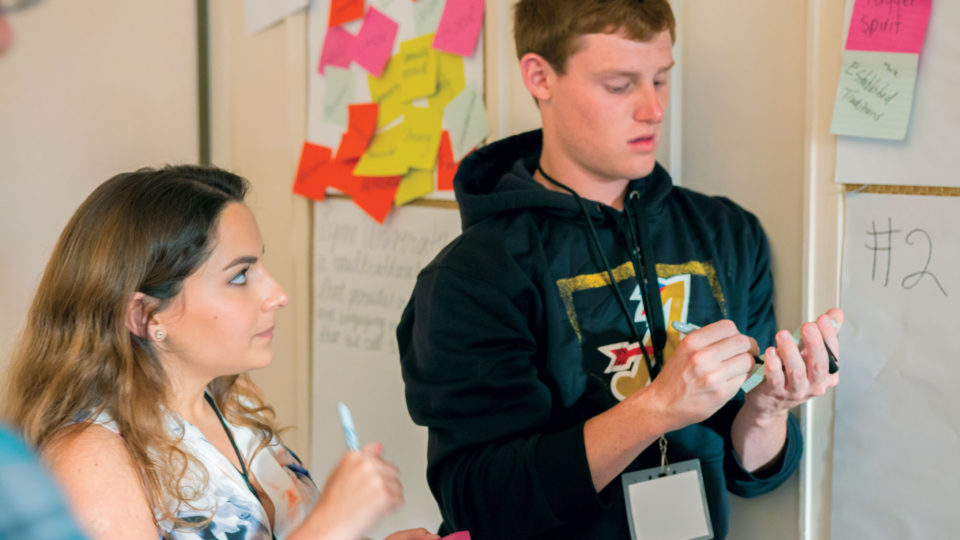
For example, Lynn has plans to develop new academic programs in social entrepreneurship, healthcare administration and computer science. It will also expand partnerships with like-minded organizations such as Watson, leveraging mobile technology to create new opportunities for students on and off campus.
The new university center, a crowning achievement of Lynn 2020, will become the heart of Lynn’s campus and a cornerstone of the university’s new plans to provide personalized support. Its infrastructure and technology are designed to provide students with spaces for 24/7 collaborating, studying, socializing and innovating. Plans for the space also include virtual and physical resource hubs to connect students, alumni, faculty and staff.
Looking back on the successes of Lynn 2020, President Ross said, “I wondered what we were going to do after all this. I don’t wonder that anymore. There are some things coming our way right now that are huge.”
